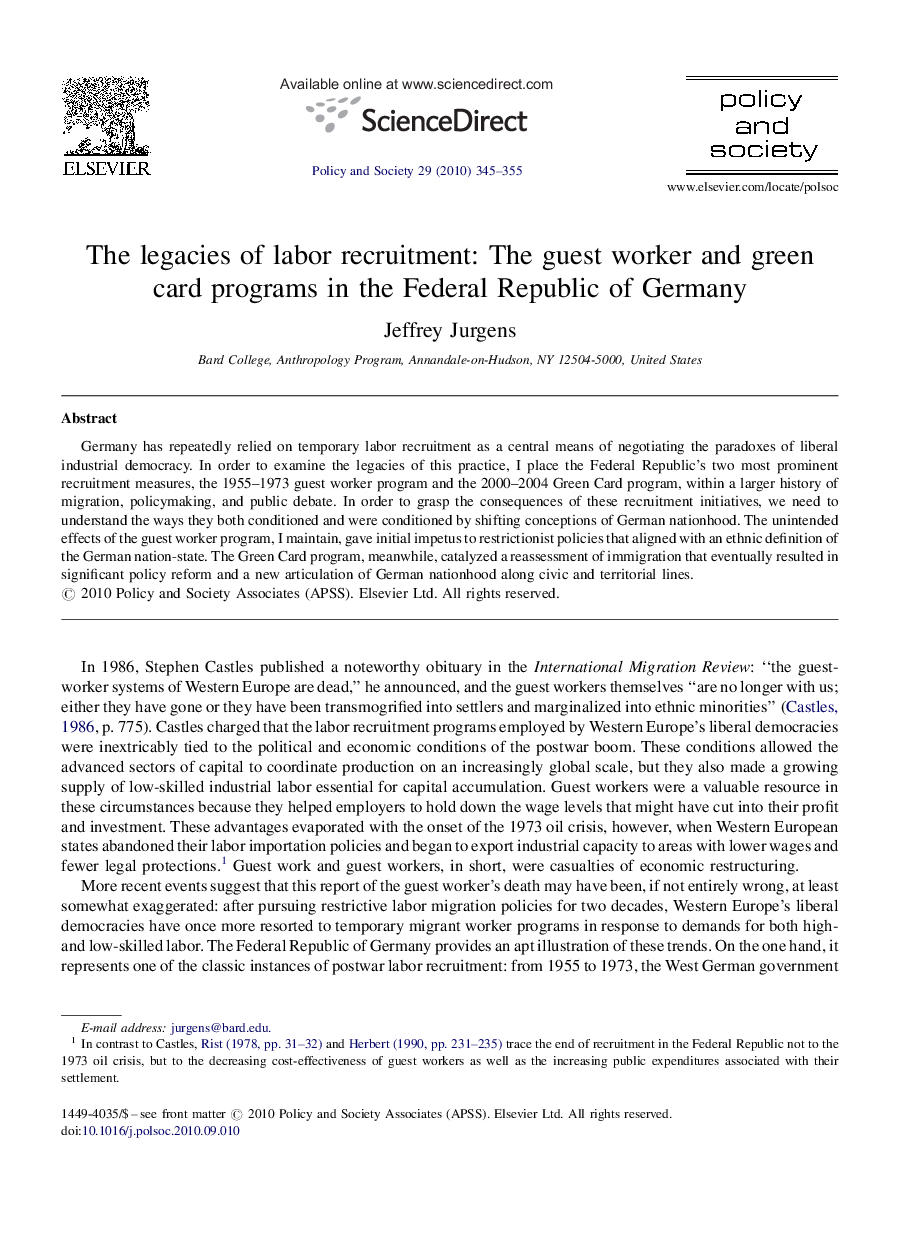| Article ID | Journal | Published Year | Pages | File Type |
|---|---|---|---|---|
| 1061676 | Policy and Society | 2010 | 11 Pages |
Germany has repeatedly relied on temporary labor recruitment as a central means of negotiating the paradoxes of liberal industrial democracy. In order to examine the legacies of this practice, I place the Federal Republic's two most prominent recruitment measures, the 1955–1973 guest worker program and the 2000–2004 Green Card program, within a larger history of migration, policymaking, and public debate. In order to grasp the consequences of these recruitment initiatives, we need to understand the ways they both conditioned and were conditioned by shifting conceptions of German nationhood. The unintended effects of the guest worker program, I maintain, gave initial impetus to restrictionist policies that aligned with an ethnic definition of the German nation-state. The Green Card program, meanwhile, catalyzed a reassessment of immigration that eventually resulted in significant policy reform and a new articulation of German nationhood along civic and territorial lines.
